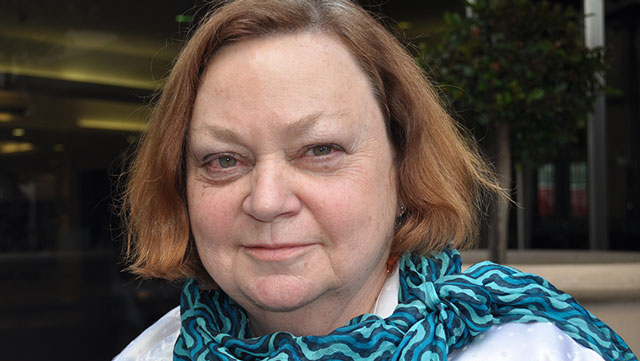
President Jacob Zuma’s decision to split the department of communications into two separate entities — one focused on broadcasting and media and the other on posts and telecommunications — is a retrograde step that has set ICT policy making in South Africa back by 25 years.
That’s the view of Democratic Alliance MP Marian Shinn, who says Zuma’s move runs counter to the convergence of industries and technologies that led to the creation of the department of communications in the first place. In the 1990s, under ministers Pallo Jordan and Jay Naidoo, the department was known as posts, telecommunications and broadcasting.
On Sunday, Zuma announced the formation of the new posts and telecoms department, to be headed by controversial former state security minister Siyabonga Cwele.
The department of communications, previously headed by the hard-working Yunus Carrim, will now look after government’s external communications arm, GCIS, as well as Brand South Africa.
The SABC and communications regulator Icasa — which deals with much more than just content regulation — will remain within the department’s purview.
“It feels like we’ve gone back 25 years. Surely this is counter to the whole convergence idea?” says Shinn. “It’s crazy. Is this a time warp we’ve climbed into?”
It’s understood that South Africa’s long-delayed project to migrate from analogue to digital terrestrial television will continue to be managed by the restructured communications department, rather than being handed to Cwele’s new department.
In doing so, Shinn says, Zuma is signalling that government views the migration programme as being “merely about broadcasting the content of communications”.
“The benefit of digital terrestrial television is the spectrum that will be made available and providing Internet around the country. It’s not just about pretty pictures on TV,” she says. “They misunderstand what communications is. They see it as a marketing and publicity tool as opposed to actually providing an electronic infrastructure that will enable economic growth and service delivery.”
Leaving Icasa under the communications department reinforces this view, according to Shinn. “It is all about broadcasting, about controlling the information people get. When you ask a layperson about communication, they think it’s about PR and marketing, which is what government thinks it is — PR and marketing for government.”
She says the decision to split the department of communications is going to lead to further delays in important projects. “Where does the ICT policy review go now?” she asks. “It’s all very muddled and the muddle is going to stall the whole process of our trying to claw our way back up the ICT rankings internationally.”
Shinn is concerned, too, about what Cwele will bring to the new posts and telecoms portfolio. “He’s a securocrat,” she says. “He’s all about cyber security and Internet surveillance, and that’s ringing alarm bells for me. Does this mean increased control of the Internet, a closed-down social media space and that sort of thing?”
Meanwhile, DA trade & industry spokesman Wilmot James says the latest World Economic Forum global IT report has “confirmed a devastating decline in South Africa’s IT infrastructure and the skyrocketing costs of Internet connectivity”.
“Although our overall ranking has stabilised — or rather, stagnated — at 70th out of 148 countries surveyed, there has been a drastic decline in speed (73rd out of 144 countries, a seven spot drop since 2013) and accessibility (87th out of 144, a two spot drop since 2013). Our prepaid mobile cellular tariff (128th out of 144) and fixed broadband Internet tariff (91st out of 144) rankings have also plummeted compared to previous years,” James says.
“The high cost, lack of access and slow Internet connectivity in South Africa is unquestionably hampering economic growth and job creation.” — © 2014 NewsCentral Media




